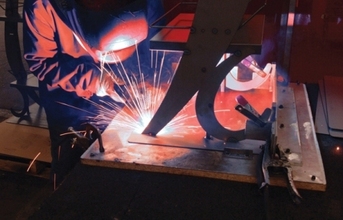
A consolidated platform
The correct ERP should focus on sector-orientated best practices to offer a complete, integrated solution, supporting manufacturing processes as well as quality and product management. The solution should be based on the principle of a single consolidated platform and applications in an integrated system with central data storage. This makes it easy to integrate operative processes and link them to accounts: from order receipt through to purchasing, production, maintenance and warehouse management, delivery logistics, customer service and sales planning.
The right ERP is built on a service-oriented software architecture (SOA) offering three important advantages. Firstly, outdated flexible individual applications can be replaced by modern ERP modules. Other existing systems can be retained by integrating them into the overall system using prefabricated interfaces. A second benefit of the SOA concept is that the IT modernisation can either be introduced on a step by step basis or using a big-bang approach. Overall, SOA therefore ensures that a modern ERP system can be expanded flexibly and adapted according to the development of the company, while always remaining uniform and consistent.
Cover all angles
Commodity prices, production costs and product quality are critical economic factors in the metal fabrication industry and these are influenced by numerous interdependent parameters. An ERP system should cover them all. It should link, for example, inventory control with material requirements planning (MRP) and functions for buying suggestions to ensure that materials are delivered on schedule and reduce just-in-time deliveries. The system should use specific cost indicators and analyses for this purpose. Each production run should also be analysed to identify overall and detailed costs for materials, material requirements, wages, subcontracts and overhead costs.
Another important factor in the metal fabrication industry is that ERP can be used to fulfil strict requirements regarding the traceability of product and material certifications - e.g. for customers in highly regulated industries such as aerospace, defence and the manufacture of medical devices. It is also possible to manage quality assurance and processes with stocks that are controlled serially.
An open and modern ERP platform that leverages mobile technology and provides more collaborative and customer-facing capabilities including quality, service and warranty management and CRM is central to creating a superior customer experience which can improve competitiveness. Metal fabrication manufacturers need to act now in order not to lag behind.
The author is Channel Director for Epicor in the Middle East, Africa & India
END


























